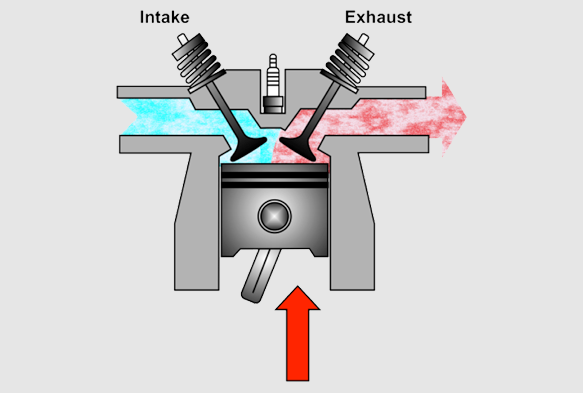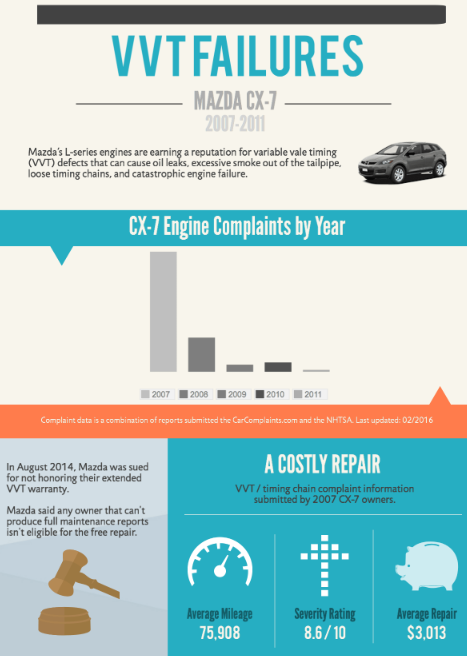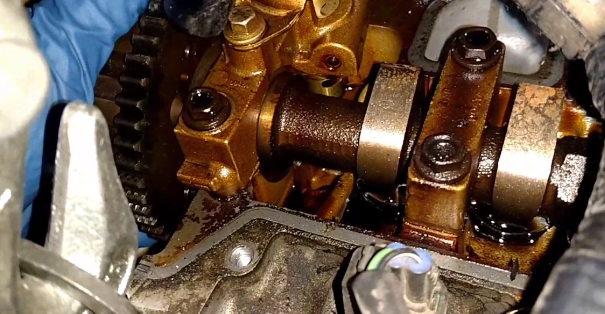Mazda’s L-series engines have been known to experience problems with their Variable Valve Timing (VVT) system, resulting in oil leaks, smoke from the tailpipe, loose timing chains, and even engine failure. Mazda has recognized these issues through a special service program yet many owners claim they are being denied warranty coverage by Mazda.
💥
What is Variable Valve Timing (VVT)?

Valves are an important part of internal combustion engines, controlling the flow of fuel, air, and gasses. There are four phases in the process: Intake; Compression; Combustion and Exhaust – each phase requires a valve to be opened and closed precisely.
Early systems used a fixed timing for opening and closing valves which was wasteful compared with modern Variable Valve Timing (VVT) technology. Benefits of VVT include improved fuel efficiency, more power generated by the engine as well as reduced emissions. The following list outlines some key benefits of VVT:
- Improved fuel economy due to the optimized air-fuel mixture
- Increased torque delivered by engine due to increased burning time
- Reduced exhaust gas temperature due to optimal combustion cycle duration
- Reduction in toxic emissions from engines due to improved burning efficiency
Mazda 6 Vvt Problems
Mazda vehicles are known for their high-quality performance, however, they too have faced issues with the Variable Valve Timing (VVT) system. When first starting the engine, a loud ticking can be heard from the VVT due to wear and tear on the system. Additionally, during lower-speed driving, there can be a knocking or rattling noise due to excessive stretching of the timing chain.
These problems should not go untreated as they can lead to costly repairs such as oil leaks, stretched-out timing chains, and even catastrophic engine failure. To avoid further damage or expensive repair bills, it is important that these issues are addressed quickly in order to prevent any long-term negative impacts on your Mazda vehicle’s performance.
Some common symptoms of VVT-related problems include:
- Loud ticking when first starting up the engine
- Knocking/rattling noise while driving under low RPMs
- Oil Leaks
If you experience any of these symptoms in your Mazda vehicle it is imperative that you take action immediately by having an experienced mechanic inspect your VVT system and address any necessary repairs or replacements promptly in order to maintain optimal performance levels overall.
Models Most Affected

The VVT Extended Warranty
Mazda Motor Corporation has recently announced a Special Service Program (SSP) to extend the warranty coverage for certain 2007-2010 CX-7, Mazdaspeed3, and 2006-2007 Mazdaspeed6 vehicles. This program will cover the repair of variable valve timing (VVT) noise and/or timing chain noise concerns up to 7 years from the original start date or 70,000 miles (whichever comes first). Mazda will replace any affected VVT actuator or both the VVT actuator and timing chain free of charge if it is determined that either one is worn.
In order to be eligible for this program, owners must produce evidence that they have maintained their vehicle properly by providing comprehensive reviews showing sufficient oil changes and never using engine oil of viscosity lower than 5W-30″. Owners can contact their local dealership with questions related to Mazda’s SSP.
To be eligible for this program:
- Evidence must be provided that maintenance was conducted properly on the vehicle
- A comprehensive review must show sufficient oil changes were done
- Engine oil viscosity cannot be lower than 5W-30
Mazda Motor Corporation encourages all owners of these models equipped with L3T engines produced between February 14, 2006, through February 27, 2010, to take advantage of this special service program. Repairing these issues promptly will ensure optimal performance for many more years down the road.
Mazda Sued For Not Honoring Their Extended Warranty
James Stevenson’s story is one that many Mazda owners can relate to. In 2014, he was sued for refusing to repair continuous variable valve timing assemblies in his L-Series engine. Mazda had issued a technical service bulletin and special service program about the problem, but refused to make necessary repairs under the extended warranty – even though James claimed he regularly maintained his vehicle by performing oil changes himself.
🚨You may be interested in:
The complaint against Mazda raised three key points:
- The defect could cause the timing chain to detach and destroy the engine;
- Mazda issued a TSB and SSP regarding this issue;
- They refused to honor their warranties without maintenance records being available for review.
Mazda does not dispute these facts but has argued that they cannot honor warranties without proof of regular maintenance or upkeep on behalf of owners like James Stevenson who may personally perform such tasks themselves rather than take them to an authorized dealer or licensed professional mechanic for service and record keeping purposes as per their policy requirements on servicing vehicles with an extended warranty contract in place hereof. Questions arise about whether it is fair or reasonable to impose such stipulations upon customers who are likely unaware of how best to protect their interests when seeking warranted repairs from manufacturers like Mazda, especially when factoring in other conditions which might also restrict valid claims further based upon mileage limits or time expired since initial purchase date etcetera as well?
💥
This controversy begs some critical questions:
- Should consumers be held accountable for providing maintenance records if they perform services themselves?
- Is it fair for companies like Mazda to deny warranty coverage due lack thereof?
- Do current laws provide enough protection against such practices from occurring?
Important Implications
- Owners of Mazda L-Series engines may experience variable valve timing (VVT) defects which can cause oil leaks, and loose timing chains and ultimately lead to engine failure.
- The first sign of VVT issues might be heard as a loud ticking noise when starting the vehicle.
- In response to these issues, Mazda extended the warranty for certain vehicles; however, was later sued for not honoring this agreement.
💥
Mazda Filed (And Won) a Motion to Dismiss the VVT Lawsuit
Stevenson filed a lawsuit against Mazda claiming the extended warranty should have applied to their vehicle, however, Mazda stated that if the problem was caused by poor vehicle maintenance (insufficient oil changes or using engine oil of viscosity lower than 5W-30), this warranty extension does not apply. As Stevenson could not produce any records of proper maintenance, on 07/13/15 in the US District Court of New Jersey, they agreed to dismiss their action against Mazda.
